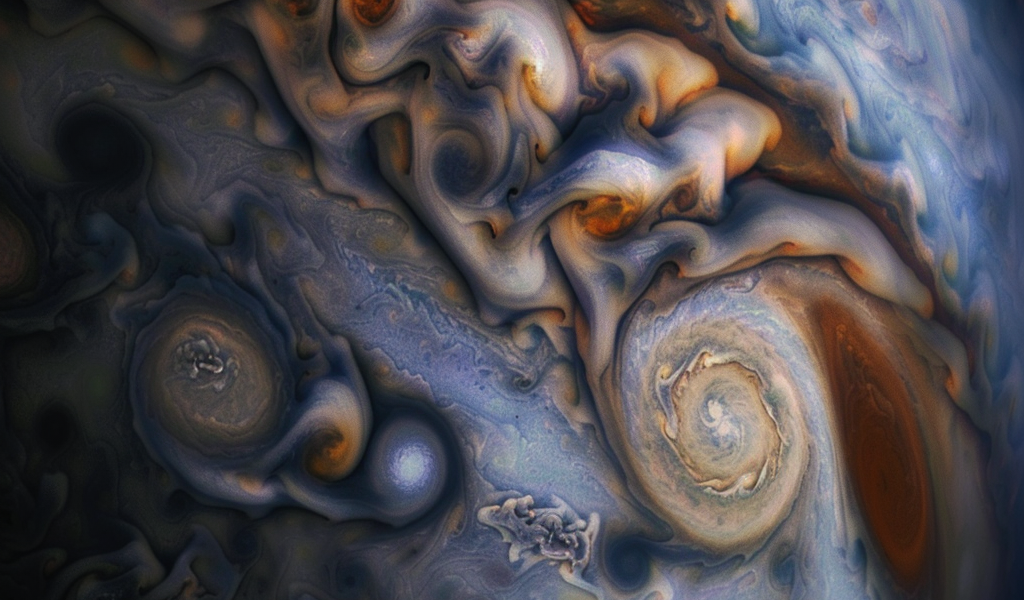Unusual fluctuations in the gas giant’s magnetic field could unlock secrets about what’s inside Jupiter. A team of scientists from Harvard University have revealed that they spotted changes to Jupiter’s magnetic field that suggest mysterious waves are moving deep inside its core.
A planet’s magnetic field acts as a window into the dynamics going on deep below its surface. Any changes to these fields reveal the secret interactions between the magnetism, fluid flow, and other forces. These same interactions generate Earth’s magnetic field.
The scientists realized that a jet (a high-speed current) deep in Jupiter’s atmosphere was fluctuating in roughly four-year periods. They discovered these fluctuations using observations from NASA’s Juno spacecraft, and published the findings in Nature. The fluctuations were concentrated in a particularly intense magnetic field on Jupiter known as the ‘Great Blue Spot’.
“These changes can be explained in large part by an eastward drift of the spot, but, as reported in this paper, that rate of drift is fluctuating,” corresponding author Jeremy Bloxham, professor of geophysics at Harvard University, told BBC Science Focus.
Bloxham and his team say that these fluctuations indicate the presence of waves deep inside Jupiter’s metallic core: a crucial step towards working out what’s hidden inside. What they’re asking now is whether these are torsional waves (waves around the planet’s rotational axis – the imaginary line Jupiter rotates around) or an Alfvén wave (waves traveling along magnetic field lines). Working this out will help the scientists unlock the answer to the forces that govern Jupiter’s magnetic field.
What’s holding them back is the mystery that remains around the jet at the planet’s equator. They say they will need more precise details so that they can properly understand what’s going on in the gas giant’s magnetic fields.
Jeremy Bloxham is a professor of geophysics at Harvard University, USA. His research investigates planetary magnetic fields, dynamo theory, structure and dynamics of the earth’s core and lower mantle, inverse theory, and mathematical geophysics.





